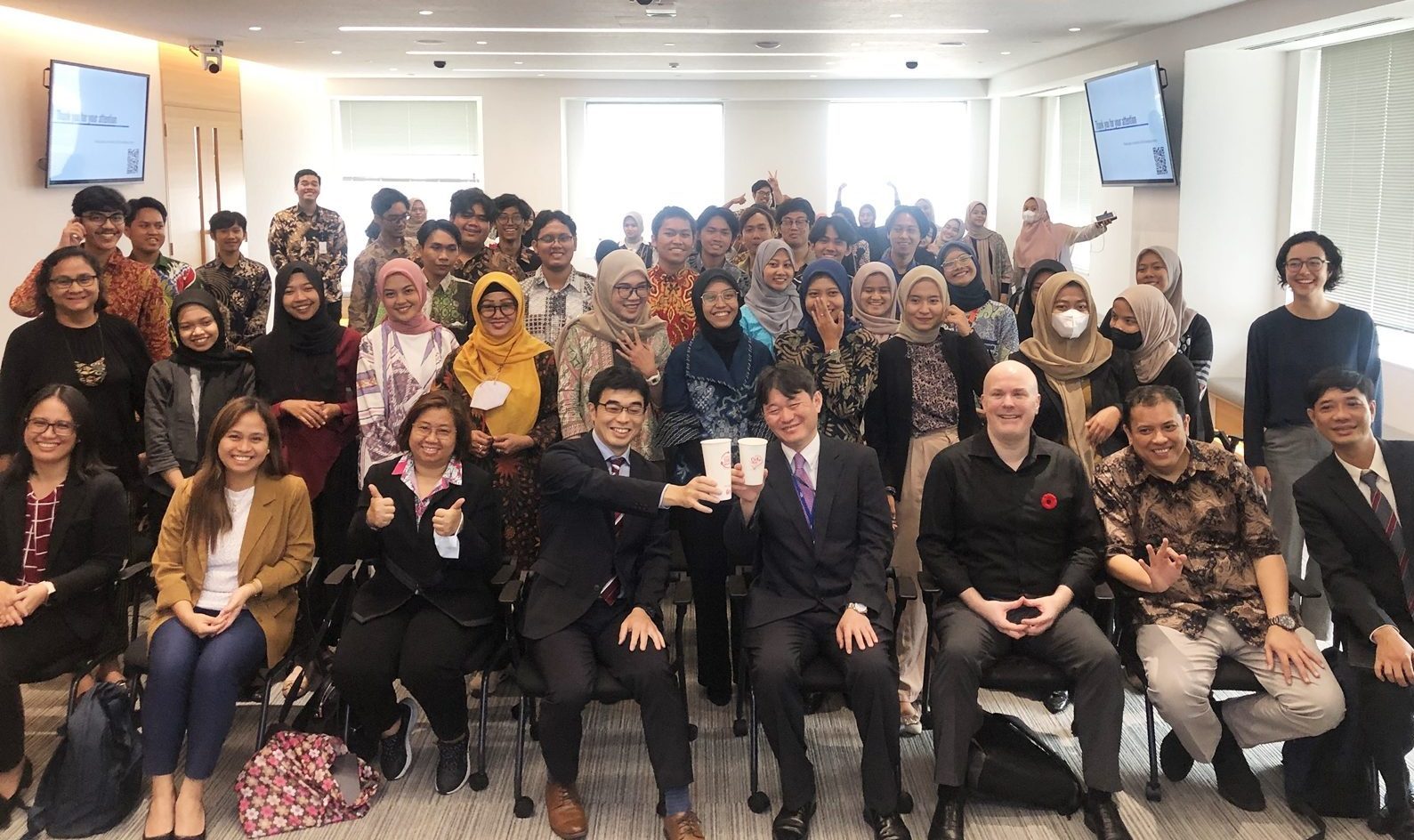Jakarta, 9 November 2023: As a way to tackle plastic waste issue in ASEAN from the social science angle, the Behavioral Insight Project Public Dialogue, took place within the ERIA premise. The event, organized by the Economic Research Institute for ASEAN and East Asia (ERIA) and the Institute for Global Environmental Strategies (IGES), aimed to explore the potential of utilizing innovative approaches developed in the fields of social science and behavioural economics in addressing plastic pollution. Experts demonstrated how understanding human behaviour could potentially drive substantial reductions in plastic consumption.
The event featured compelling case studies from four nations—Indonesia, Thailand, the Philippines, and Viet Nam—where the pilot project took place, and behavioural interventions led to compelling results in reducing plastic consumption from the experiment. These success stories shed light on the practical application and effectiveness of behavioural insights in encouraging sustainable practices.
The dialogue focused on sharing the benefits, challenges, and cautions of implementing plastic reduction methods using behavioural insights across various settings, including cities, communities, schools, and businesses. Participants discussed the roles of local governments, schools, businesses, and researchers and emphasized the importance of a wide spectrum of stakeholders to be fully engaged. The event had its purpose to disseminate the insights gained in the 4 countries and best practices drawn from the project to the public.
The event featured esteemed speakers, including representatives from the Ministry of Environment and Forestry of the Government of Indonesia, and experts from IGES, ERIA, and academic institutions. Through interactive panel discussions, participants explored notable changes in behaviours achieved through the design and implementation of the project. The dialogues also delved into the roles project participants could play and strategies for utilizing achievements and lessons effectively.
Approximately 120 online and on-site participants attended the event, including private sector, civil society representatives, and university students, to consider the application of behavioural insight approaches in their work. The discussions not only broadened awareness but also nudged participants to contemplate innovative strategies for reducing single-use plastic consumption in their respective domains.
Mr. Reo Kawamura, Director for the Regional Knowledge Centre for Marine Plastic Debris thanked, in his opening remark, colleagues of the Center for Southeast Asian Studies from Indonesia, of the University of the Philippines Diliman, of Chulalongkorn University from Thailand, and of Southern Institute of Ecology from Viet Nam for their hard work on the ground. While acknowledging that this pilot project is still in its early stages and conducted within a limited environment and sample size, he expressed his hope for scaling up the project to cover a larger area, potentially at the city level.
In the keynote speech, Ms. Jo Kumala Dewi, Director of Environmental Partnership, Ministry of Environment and Forestry of the Republic of Indonesia stated that encouraging sustainable consumption and responsible consumer behaviour is one of the ways to achieve environmental and social balance. As a token of appreciation for citizens who voluntarily carried out impactful nature-friendly activities, the Ministry of Environment and Forestry gave away appreciation awards in the past, she explained.
Dr. Atsushi Watabe, Programme Director, Sustainable Consumption and Production Area of IGES shared with the audience that it is still uncommon to see a social science survey study on people’s behaviour to improve plastic waste management in the Southeast region and this pilot project targeting 4 ASEAN countries is a novelty. Given the unique socio-cultural context of the region, there is so much to unpack, and IGES is happy to develop the toolkits with the support of the partners aimed at inspiring local governments, businesses, and educators to take action.
One of the important components of the Regional Action Plan for Combating Marine Debris in the ASEAN Member States (2021-2015) is enhancing public awareness, education, and outreach. Action No 11 specifically lays out the importance of behavioural change as a way to tackle marine plastic waste.

